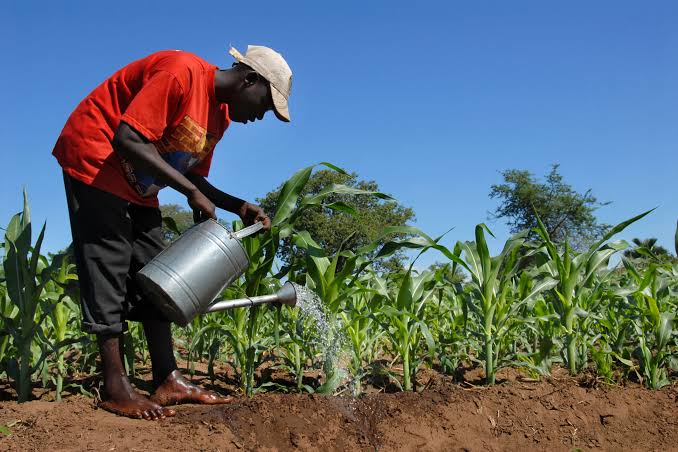Agriculture is a major part of the climate problem, It generates 19/29% of total greenhouse gas (GHG) emissions, which might likely rise substantially as other sectors reduce their emissions.
Globally, growing population and changing diets are driving up the demand for food, while production is struggling to keep up as crop yields level off in many parts of the world, ocean health declines, and natural resource, including soils, water, and biodiversity.
The signing of the Breakthrough Agenda at the 2021 UN Climate Change Conference (COP26) in Glasgow, a clean technology plan to help mitigate the rise in global temperature to 1.5°C, which cover over half of global emissions reduction targets through clean power, zero-emission vehicles, near-zero emission steel production, renewable and low-carbon hydrogen, and climate-resilient, sustainable agriculture
World leaders need to translate commitments made at the UN Climate Change Conference (COP26) into tangible action that will fosters climate resiliency in agricultural systems.
The food security challenge is becoming more difficult, as the world need to produce about 70 percent more food to feed an estimated 9 billion people by 2050.
This challenges is intensified by climate change, while it’s negative impacts are already being felt, in the form of increasing temperatures, weather variability, shifting agro-ecosystem boundaries, invasive crops and pests, frequent extreme weather events.
The new climate risks, require changes in agricultural technologies and approaches to improve the lives of those still locked in food insecurity and poverty.
Climate change is reducing crop yields, and the nutritional quality of major cereals, while it also lower livestocks productivity on farms.
Climate-smart agriculture (CSA), an integrated approach to managing landscapes, croplands, livestocks, forests and fisheries, will also address the interlink challenges of food security and accelerate climate change solutions.
Climate-Smart Agriculture (CSA) will help improve food security, increase resilience, and reduce emissions from agri-food systems, with huge benefits for people, the planet and economies.
Proper investment planning will support the prioritization of Climate-Smart Agriculture in Africa and around the world, drive sustainable investments, and influence agricultural policies, while it will also scale up through effective policies, context-specific technologies, innovative financing for successful agricultural systems transformation, and capture new funding opportunities to close the deficit in investment.
Leaders around the world should engage more with private sector financiers on CSA, this could include improving access to sustainable linked loans with lower interest rates, which should be have more favourable lending periods than conventional commercial loans.
World Bank, one of multilateral financier of climate action focused on supporting countries with investments in clean energy at scale to prevent them from being locked into polluting infrastructure and helping them achieve their energy access goals, has also scaled up climate-smart agriculture in its Climate Change Action Plan.

